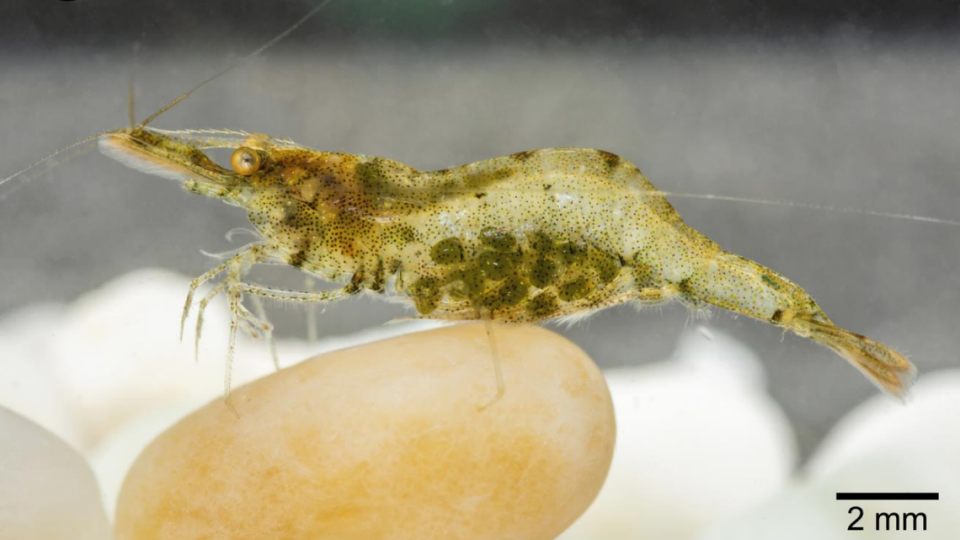New species — with ‘intriguingly’ large eggs — pulled from roadside canal in Thailand
A new species of crustacean has been discovered lurking in the lakes, streams and canals of northern Thailand, researchers said.
The creature, a type of freshwater shrimp, is the first of its genus to be found in the country in over 100 years, according to a study published on May 6 in the journal Tropical Natural History.
Researchers found it while conducting field surveys near the Mekong River, which runs along the Southeast Asian nation’s northern border.
Using triangular dip nets, researchers scooped living specimens out of bodies of water along the river, including ponds and small roadside canals. The tiny, green-brown shellfish were then photographed, euthanized and placed in ethanol for storage and later analysis.

The samples were taken to Mahidol University in Bangkok, where they were examined under microscopes and subjected to DNA analyses, which confirmed the identification of a new species.
The new species is now the 15th known member of the Caridina genus in Thailand, and it is the first of the group to be landlocked, meaning it never migrates to the sea. It was named Caridina panhai in a nod to Somsak Panha, a Thai taxonomist who studied invertebrates.
The shrimp is differentiated from others in its genus by subtle bodily distinctions, such as its “strongly convex” rostrum, which is a beak-like projection between the eyes, researchers said.
“Intriguingly,” the researchers add, “females of Caridina panhai … possess a small number of very large eggs (22–36 eggs per individual), which is characteristic of land-locked species.”
The distribution of the new species appears to be small, limited to the Mekong River, its tributaries and surrounding bodies of water, which is a common characteristic of freshwater shrimp.
While saltwater species tend to roam large over large areas, landlocked shrimp tend to be homebodies, largely staying in the same habitats as their parents.
It’s possible more members of the Caridina genus are darting around the rivers and streams of Thailand, waiting to be discovered since they remain largely unstudied in the country, researchers said.
‘Unusual’ colorful creature found in dead leaves. It turned out to be rare discovery
Elusive black creature spotted for first time in months — now with a little ‘shadow’
Ever feel like seagulls watch you eat? They probably do — and here’s why, study says

